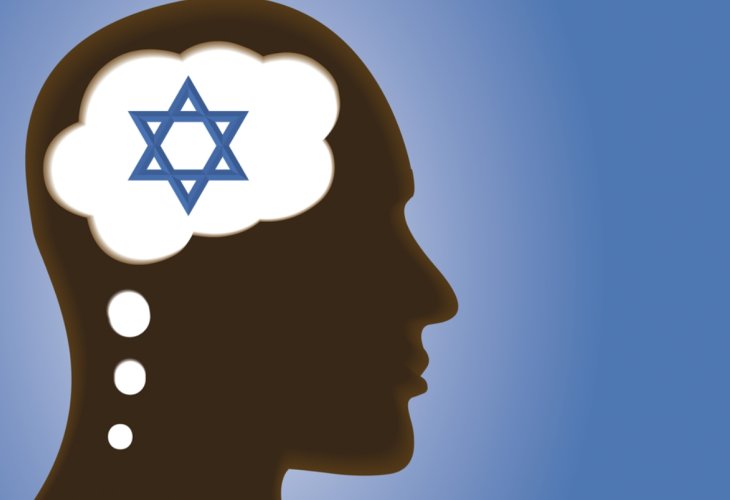In Search of God
Are Only the Wise and Holy Important to God? The True Value of Every Soul in Creation
Jewish wisdom teaches that every person has a unique divine purpose, and even the simplest soul can be more beloved to God than the wisest sage
 (Photo: shutterstock)
(Photo: shutterstock)Sigal asks: “If God created the world for the greatest sages and most righteous people, what about ordinary Jews — the good, simple people who never reached great wisdom or deep Torah understanding? Was the world created only for the elite few?”
* * *
Every Jew possesses a divine soul of immense holiness and has the power to repair a part of creation that no one else can fix. The Sages taught: “Every person must say: the world was created for me.” (Mishnah Sanhedrin 4:5) It says “every person,” not only the wise or the saintly.
Judaism teaches that wisdom does not necessarily make a person more beloved in the eyes of God. In fact, Jewish law teaches that a Torah scholar must be willing to give up his own life rather than save it at the expense of another — even an ordinary Jew. This principle was tragically illustrated during the Holocaust, when great Torah scholars refused to exchange their lives for others, choosing instead to preserve the sanctity of every Jewish soul equally.
As the Talmud states: “Who says your blood is redder? Perhaps the blood of your fellow is redder.” (Pesachim 25b) Rashi explains this to mean: “Who says your life is more precious before God than his? Perhaps his is more beloved.”
Simple Souls, Great Deeds
Jewish tradition is filled with stories of righteous but “simple” people whose good deeds surpassed those of scholars. Great rabbis were sometimes shown in a dream who their eternal partner in Heaven would be — often a tanner, butcher, or craftsman. When they investigated, they found these people excelled in hidden mitzvot such as extraordinary honor for parents, saving others from sin, or quiet acts of kindness.
Rabbi Elazar ben Dordaya, who spent his life in sin, was called Rabbi after earning eternal life through one hour of complete repentance. He wept until his soul departed, and a heavenly voice proclaimed that he had earned his place in the World to Come (Avodah Zarah 17a).
Many such “simple” Jews throughout history gave their lives al kiddush Hashem — for the sanctification of God’s Name.
Why Moshe (Moses) and David Were Chosen
Why was Moshe chosen to lead Israel? Was it because he was the most brilliant philosopher? The Midrash reveals otherwise: When Moshe tended the flock of his father-in-law Yitro, a little lamb ran away. Moshe chased after it until it reached a stream and began to drink. Moshe said, “I didn’t know you were running because you were thirsty! You must be tired now.” He lifted the lamb onto his shoulders and carried it back. God said: “Since you show such compassion to the flock of flesh and blood, you will shepherd My flock, Israel.” (Shemot Rabbah 2:2)
The Torah itself testifies: “Moshe was very humble, more than any man on the face of the earth.” (Bamidbar 12:3)
Similarly, David was chosen as king not for his might, but for his tender care: God tested David with sheep and saw he fed each according to its strength — the young with soft grass, the old with medium grass, and the strong with tough grass. God said: “He who knows how to care for sheep one by one will care for My people.”
 (Photo: shutterstock)
(Photo: shutterstock)The Wise Are Not Above the People — They Serve Them
Wisdom, then, is a gift from Heaven — not for self-glory, but to serve others with justice and compassion. The Torah commands kings and scholars alike never to exalt themselves over the people: “So that his heart not be lifted above his brothers.” (Devarim 17:20)
The people do not exist to serve the king, but the king exists to serve the people: “You shall surely set over yourself a king… whom the Lord your God shall choose from among your brethren.” (Devarim 17:14–15)
A true sage understands that his wisdom was given to guide and uplift others — not to isolate himself. Moshe received the Torah not to keep it, but to teach it.
One Nation, One Living Body
There can be no “head” without a “body,” and no body without a head. The sages and the nation are one living organism. The wise man is the head — his eyes guide the body, but the limbs are inseparable from him. Without them, the head can do nothing.
Thus, the righteous need the people just as the people need the righteous. Together they form one whole: “And you shall be to Me a kingdom of priests and a holy nation.” (Shemot 19:6)
“All Israel are responsible for one another.” (Sanhedrin 27b) The universe, like humanity, is not black-and-white. It is a full spectrum of many colors forming one picture. Each role, each soul, is indispensable.
The Heart and the Mind
Just as the brain is not “better” than the heart — for without the heart, the brain is useless, so too the righteous are not “better” than ordinary people. Each has a vital role. The mind may guide, but the heart gives life.
The Torah’s view is therefore not “who exists for whom,” but that all exist for each other, to serve God as one united being.
Even Angels Depend on Humanity
Even the angels who are purer and higher than humans, serve as messengers for prophets. However, they lack free will, and the power to choose between good and evil. Humanity alone possesses this divine gift. “The Torah was not given to the ministering angels.” (Kiddushin 54a)
A human being can rise higher than an angel through moral choice. “I call heaven and earth to witness: Jew or gentile, man or woman, slave or maidservant — all according to their deeds, so shall the spirit of holiness rest upon them.” (Tanna d’Bei Eliyahu, ch. 9)
Hence, we cannot say whose “blood is redder.” Only God knows the heart: “The Lord tests the righteous; He sees the kidneys and the heart.” (Yirmiyahu 20:12)
True Wisdom Serves Others
A true sage understands that his wisdom is not for himself, but for the good of the many. Without that purpose, his wisdom is lifeless — like a brain severed from the body.
A wise person who refuses to guide or help others is like a dead mind inside a living body. But one who uses his gifts to serve others becomes a living conduit of divine compassion.
This is the essence of ahavat Yisrael — love of the Jewish people. The wise and the simple, the great and the small, unite to serve God with one heart. Through this unity, the sage becomes a humble, holy leader — and every Jew fulfills their divine purpose in creation.

